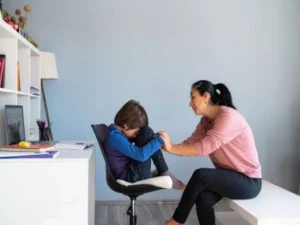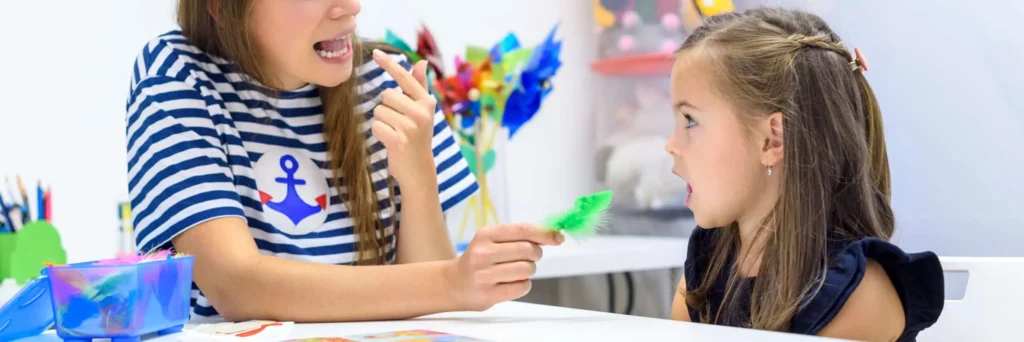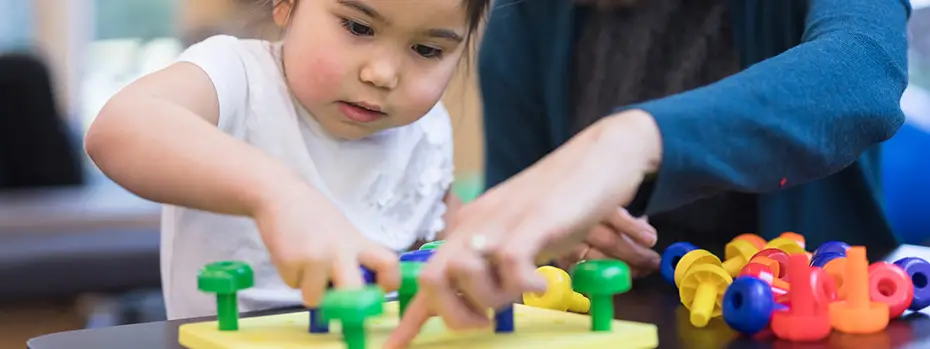In today’s fast-paced world, the significance of addressing mental health issues in children cannot be overstated. Pediatric psychiatrists play a crucial role in this realm, providing specialized care to support the emotional well-being of children. This article delves into the responsibilities of a pediatric psychiatrist, the common mental health issues they address, and the holistic approaches used to ensure a child’s mental health.
Contents
Common Mental Health Issues in Children
 Children and teenagers may encounter various mental health issues that necessitate consultation with a pediatric psychiatrist. Here’s a breakdown of some prevalent challenges:
Children and teenagers may encounter various mental health issues that necessitate consultation with a pediatric psychiatrist. Here’s a breakdown of some prevalent challenges:
Anxiety Disorders
- Children may grapple with generalized anxiety or social anxiety, significantly impacting their daily lives and interactions.
- Signs include excessive worry, avoidance behaviors, and physical symptoms like headaches or stomachaches.
Attention-Deficit/Hyperactivity Disorder (ADHD)
- ADHD is a prevalent condition affecting a child’s focus and impulse regulation, often necessitating specialized interventions.
- Symptoms encompass inattention, hyperactivity, and impulsivity, hindering academic and social functioning.
Depression
- Pediatric psychiatrists play a vital role in addressing depressive disorders in children, guiding them through the complexities of their emotions.
- Indications include persistent sadness, changes in sleep or appetite, and withdrawal from activities once enjoyed.
Autism Spectrum Disorder (ASD)
- Children with ASD may find support from pediatric psychiatrists in managing social and behavioral challenges.
- Characteristics encompass difficulties in social interaction, repetitive behaviors, and intense focus on specific interests.
Signs That Signal the Need to Consult a Pediatric Psychiatrist

- Changes in Behavior
Sudden or pronounced changes in behavior, such as increased aggression, withdrawal, or mood swings, may indicate underlying mental health concerns. - Academic Struggles
Persistent difficulties in concentration, completing tasks, or declining academic performance may signal the need for professional evaluation. - Social Withdrawal
If a child consistently avoids social interactions, shows reluctance to attend school or extracurricular activities, it could be a sign of emotional distress. - Physical Symptoms without Medical Cause
Complaints of physical ailments like headaches or stomachaches, without an apparent medical cause, might be manifestations of underlying anxiety or emotional struggles. - Expressed Thoughts of Hopelessness or Self-Harm
Verbalizing feelings of hopelessness, worthlessness, or expressing thoughts of self-harm necessitate immediate attention and professional intervention.
Recognizing these signs early on allows for timely intervention and ensures that children receive the necessary support from qualified pediatric psychiatrists.
How a Pediatric Psychiatrist Can Help?
 Pediatric psychiatrists play a vital role in supporting the mental health and well-being of children and adolescents. Here’s how these specialized professionals can make a positive impact:
Pediatric psychiatrists play a vital role in supporting the mental health and well-being of children and adolescents. Here’s how these specialized professionals can make a positive impact:
- Diagnostic Clarity: Pediatric psychiatrists employ comprehensive assessments to accurately diagnose mental health conditions in children. This clarity is fundamental for developing effective treatment plans.
- Tailored Treatment Plans: Each child is unique, and so are their mental health needs. Pediatric psychiatrists create personalized treatment plans that may include psychotherapy, medication, or a combination of both, aligning with the individual needs of the child.
- Emotional Support: Children facing mental health challenges often need a safe space to express their emotions. Pediatric psychiatrists provide empathetic and non-judgmental support, fostering trust and communication.
- Collaboration with Families: Recognizing the importance of family dynamics, pediatric psychiatrists actively involve parents and caregivers in the treatment process. This collaboration enhances the effectiveness of interventions and creates a supportive environment for the child.
- Skill-Building Techniques: Pediatric psychiatrists equip children with coping mechanisms and skill-building techniques to navigate challenges in various aspects of their lives, promoting resilience and self-reliance.
- Monitoring Progress: Continuous monitoring of a child’s progress is integral to pediatric psychiatry. Adjustments to treatment plans are made as needed, ensuring that interventions evolve with the child’s changing needs.
- Prevention and Early Intervention: By addressing mental health concerns early, pediatric psychiatrists contribute to preventing more severe issues later in life. Early intervention can pave the way for healthier emotional development in children.
In summary, the role of a pediatric psychiatrist extends beyond diagnosis and treatment. These professionals become allies in the journey to mental well-being, offering holistic support and guidance that can positively shape a child’s future.
Treatment Approaches Used By Pediatric Psychiatrists

Pediatric psychiatrists employ a diverse range of treatment approaches to address the unique mental health needs of children and adolescents. These approaches are tailored to the individual, taking into account the specific challenges they face. Here’s an exploration of the treatment modalities used by these specialized professionals:
Psychotherapy
- Cognitive-Behavioral Therapy (CBT)
Pediatric psychiatrists often utilize CBT, a goal-oriented therapy that helps children identify and modify negative thought patterns, promoting healthier behaviors and coping mechanisms. - Play Therapy
Especially effective for younger children, play therapy allows them to express themselves through play, aiding in the communication of complex emotions and experiences. - Family Therapy
Recognizing the impact of family dynamics, family therapy involves the entire family in the therapeutic process, fostering improved communication and understanding.
Medication Management
- In certain cases, pediatric psychiatrists may prescribe psychotropic medications to address specific symptoms. These medications are carefully monitored to ensure their effectiveness and minimize side effects.
- Pediatric psychiatrists engage in collaborative discussions with parents and caregivers, explaining the potential benefits and risks of medication, and involving them in the decision-making process.
Holistic Approaches
- Physical and Emotional Well-being
Pediatric psychiatrists recognize the interconnectedness of physical and emotional well-being, promoting a holistic approach to mental health that encompasses both aspects of a child’s life. - Collaboration with Schools and Communities
Engaging with schools and communities ensures a comprehensive support system that addresses a child’s mental health in various environments.
Therapeutic Techniques
- Art and Music Therapy
Incorporating creative arts, such as art and music therapy, provides alternative avenues for expression, particularly beneficial for children who may struggle with verbal communication. - Mindfulness and Relaxation Techniques
Teaching mindfulness and relaxation techniques helps children manage stress and anxiety, fostering emotional regulation and resilience.
In conclusion, the treatment approaches employed by pediatric psychiatrists are diverse and flexible, reflecting a commitment to personalized and holistic care for the mental well-being of children and adolescents.
How to Find a Qualified Pediatric Psychiatrist for Your Child Near You
 Finding a qualified pediatric psychiatrist for your child is a crucial step towards supporting their mental health. Here are some tips to help you locate a suitable professional in your area:
Finding a qualified pediatric psychiatrist for your child is a crucial step towards supporting their mental health. Here are some tips to help you locate a suitable professional in your area:
- Ask for Referrals: Seek recommendations from friends, family members, or colleagues who may have experience with pediatric psychiatrists. Personal referrals can provide valuable insights into the doctor’s approach and effectiveness.
- Research Online Directories: Utilize online directories that specialize in mental health professionals. Websites like Psychology Today or Healthgrades allow you to search for pediatric psychiatrists based on location, specialties, and patient reviews.
- Credentials and Licenses: Ensure that the pediatric psychiatrists on the platform are licensed professionals with the necessary credentials.
- User Reviews: Look for reviews and testimonials from other parents who have utilized the services. Positive feedback can be a reassuring factor.
- Technological Features: Assess the platform’s technological features, ensuring it offers a secure and reliable environment for online consultations.
- Accessibility: Choose a platform that is easily accessible, user-friendly, and provides the necessary support for both parents and children.
- Online Platforms Offering Tailored Counseling Services: With the advancement of technology, several online platforms provide tailored online counseling services, making mental health support more accessible. Two notable platforms are MantraCare and TherapyMantra
Remember to take your time researching and choosing a pediatric psychiatrist who aligns with your child’s needs and your family’s preferences. Whether you opt for in-person consultations or explore online platforms, prioritizing your child’s mental health is a commendable step towards their overall well-being.
Conclusion
In today’s fast-paced world, where accessibility and convenience are paramount, the role of online therapists has become increasingly vital. These professionals offer a convenient and accessible means for individuals, including children and adolescents, to receive crucial mental health support and treatment.
For parents navigating the challenges of raising children, educators fostering educational environments, or advocates dedicated to children’s well-being, online therapy provides a tailored and effective approach.
Visit TherapyMantra today and take action for children’s mental health: Book a Trial Online Therapy Session. Whether you are a parent seeking support, an educator looking to enhance your understanding, or an advocate for children’s mental well-being, online therapy can be a transformative experience.


